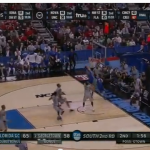
Chris Humphreys – US Presswire
After the drama of the Hall of Fame voting, in which Barry Bonds and Roger Clemens were rightly not voted in, MLB chose the next day to announce additions to its drug testing policy. According to their press release, they will now do blood tests for Human Growth Hormone (hGH) and they’re working with a World Anti-Doping Agency (Wada) laboratory in Montreal to increase detection of synthetic testosterone. It is important to make it clear that despite the title of this piece and despite what I am going to say, I do think that this is a good thing. Baseball has gone from no testing ten years ago to now having the best testing of any sport in the United States; they hove done an admirable job of recognising a massive problem and responding to it.
But while this is another step forward, it is not one directly forward and baseball is still missing its mark. The problem is that while baseball now has an excellent method of catching drug cheats, the punishments then handed down are a pat on the wrist. The current punishment for a first time offender is a 50-game suspension. This immediately sounds like a lot, but in a 162-game season it really isn’t; it is less than two months. This was driven home this year when the possibility was raised that Melky Cabrera would return to the San Francisco Giants for the NLCS. To the Giants’ immense credit they did not put him back on the roster, but there was nothing stopping them from doing so. That such a situation even arose is ridiculous and as long as the punishment for taking performance enhancing drugs is so light it is going to continue to be a problem despite tighter testing.
What baseball needs to do was actually hinted in the press release. MLB is now working with a Wada laboratory; it must go further and bring itself into line with the Wada standards. These are the international standards for dealing with drug cheats in all Olympic sports and others as well and they offer a much stricter penalty. The standard penalty for a positive drug test under the Wada code (which is available on their website) is a two year suspension. It can be increased or decreased due to aggravating or mitigating factors, but that is the standard and it is what baseball needs to implement. A two-year ban is short enough that an average player could reasonably come back from it, but long enough that it is a powerful deterrent.
Until that, or something like that, happens I think baseball will always have an above average drug problem and we will continue to have debates on where to draw the line for major honours like the Hall of Fame. Baseball simply has to send out the message that taking performance enhancing drugs is one of the most serious acts of cheating a player can commit. The increased testing is a good measure, but those in charge of Major League Baseball are kidding themselves if they think it will go very far toward eradicating the problem of drug cheats.

















